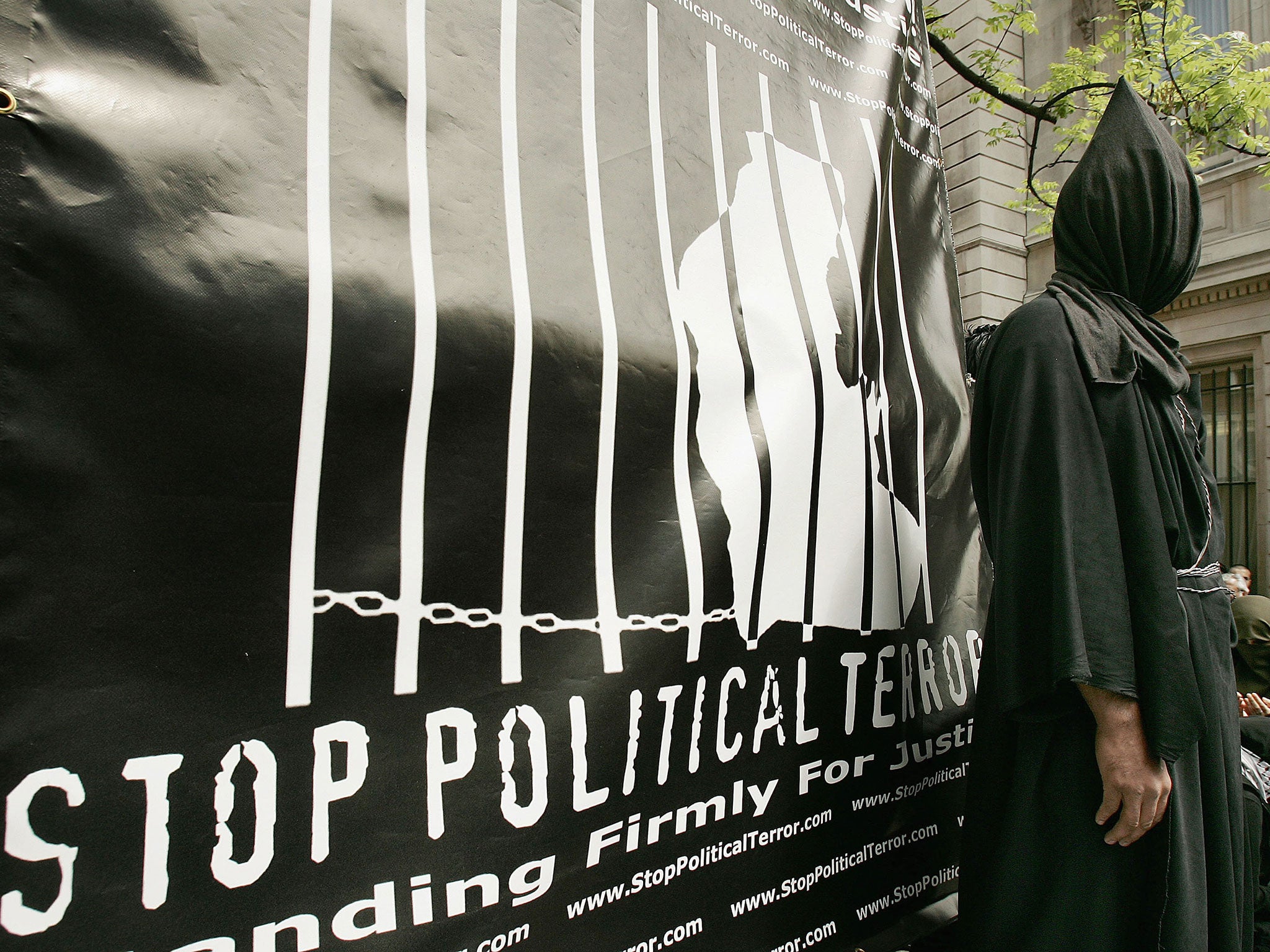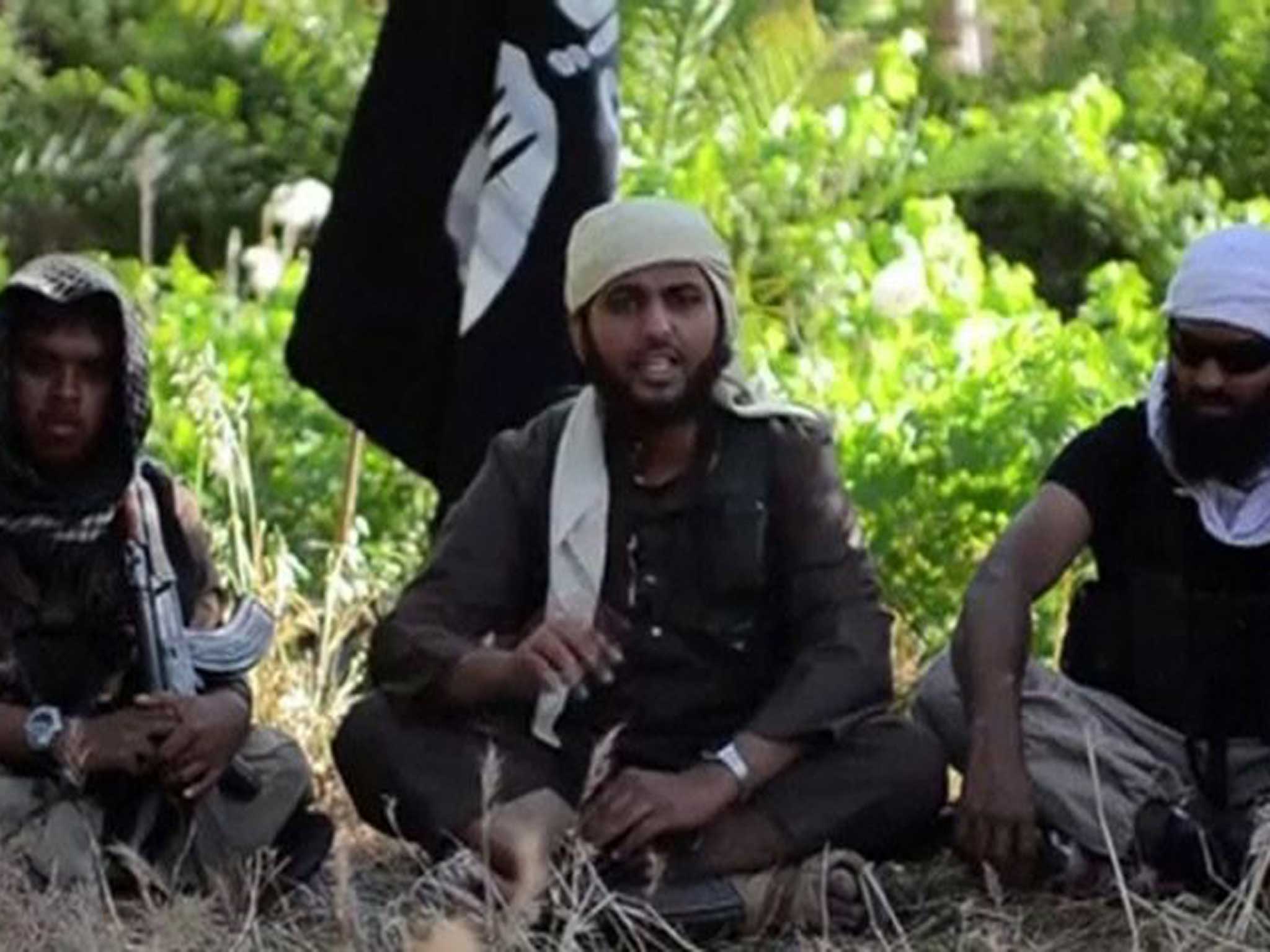Battle against Isis: Plan to charge jihadists with treason 'will not work,' claims terror expert
Moves to prosecute Britons returning from Iraq and Syria would be counter-productive, Professor Peter Neumann to tell MPs

Your support helps us to tell the story
From reproductive rights to climate change to Big Tech, The Independent is on the ground when the story is developing. Whether it's investigating the financials of Elon Musk's pro-Trump PAC or producing our latest documentary, 'The A Word', which shines a light on the American women fighting for reproductive rights, we know how important it is to parse out the facts from the messaging.
At such a critical moment in US history, we need reporters on the ground. Your donation allows us to keep sending journalists to speak to both sides of the story.
The Independent is trusted by Americans across the entire political spectrum. And unlike many other quality news outlets, we choose not to lock Americans out of our reporting and analysis with paywalls. We believe quality journalism should be available to everyone, paid for by those who can afford it.
Your support makes all the difference.Britain's "lock-them- up" approach to dealing with returning British jihadist fighters is doomed to failure and risks making it harder to find potential terrorists, warned one of the world's leading terror experts yesterday.
"Britain needs a more differentiated strategy towards people returning from conflict in Syria and Iraq," said Professor Peter Neumann, director of the International Centre for the Study of Radicalisation at King's College London.
Professor Neumann will tell MPs in Parliament tomorrow that a punitive approach, which includes prosecuting people for treason, is misguided. "Right now the strategy is very much we're going to lock them up – we're going to try them for treason. It's a strategy that is based basically only on a punitive approach." The academic, a senior adviser on the UN Security Council resolution introduced by President Obama earlier this year, calling for global action to tackle the threat, added: "While that may be correct for some, there are also a number of other categories of people that could be dealt with differently."
His criticism of the Government's anti-terror response follows that of former Director of Public Prosecutions, Lord Macdonald QC, who said charging returning jihadists with treason was "a juvenile response to a grown-up problem".
It comes after claims to MPs last week by the Foreign Secretary, Philip Hammond, that Britons who fight for Islamic State (Isis) or swear allegiance to the group could be charged with treason. The Foreign Secretary admitted there were talks within the Government about resurrecting the law, which can carry a life sentence. It is the latest in a series of draconian measures being considered by the Government, which also include anti-social behaviour orders for extremists and tougher laws to make it illegal to join extremist groups, even those not directly involved in terrorism.

Professor Neumann said that people returning from Syria broadly fell into one of three categories: the dangerous, the disturbed and the disillusioned. Those deemed a danger should be imprisoned, but some will be traumatised by their experiences and "need psychological help more than prison". Others will be "disillusioned people who have become disenchanted with IS, who never really joined in the first place and who just want to reintegrate into British society, and these people should be supported because they could become very powerful voices speaking out against Isis".
Hundreds of veterans from Syria are already back in Britain. "So it's not a future problem – it's a problem that already exists," he said. "The Government does not know the identities and whereabouts of every single one of those 250 people. If you have only the punitive approach then these people will not come forward."
There are now thousands of foreign fighters in Syria, including hundreds of Britons. About 30 British jihadists are believed to have died fighting alongside Isis and other groups in Syria. Britain's most senior counter-terrorism police officer, assistant commissioner Mark Rowley, warned last week that operations against Syria-linked threats are at an "exceptionally high" level, with more than 200 anti-terrorism arrests across Britain this year. Although at least 500 jihadists are suspected of travelling abroad, only 16 returning from Syria have been charged under the Terrorism Act, which outlaws training and preparing for terrorist acts. Three have been convicted.
Government officials know they cannot convict everyone, claimed Professor Neumann. "The reality is that, as people in the Home Office have told me, there is not necessarily enough evidence for everyone to be convicted." This risks a significant number being acquitted and "beyond the control of the security forces altogether". Jailing jihadists carries its own risk – "putting a large number of potentially highly radicalised people into a system where they can spread their ideology further".
The rise of women within the ranks of jihadists has taken experts by surprise, he admitted. "Ten to 15 years ago, if you were looking at home-grown extremism in the UK, it would be very rare to see females involved. Now, in most European countries we have between 10 and 15 per cent women, often without prior association in the extremist movement, who have gone to Syria to support Isis." They are not there as fighters but "on the ground in supportive functions", he added. Women should be viewed as "potential recruits" but are being "largely ignored by current government approaches" which view them "typically as some positive influence on the men within their family". This is one of the reasons why Professor Neumann and others have been calling for the prevent counter-terror strategy to be "completely recalibrated".
The terror expert accused the Government of failing to match its words with actions. "The Government says this is the greatest extremist threat that Britain has faced for a generation, yet at the same time, at the policy level we haven't seen the amount or the degree of engagement that would be necessary if it really was the biggest threat, so there's a disconnect here," he said. "They need to match the rhetoric with actual policy action on the ground."
Join our commenting forum
Join thought-provoking conversations, follow other Independent readers and see their replies
Comments